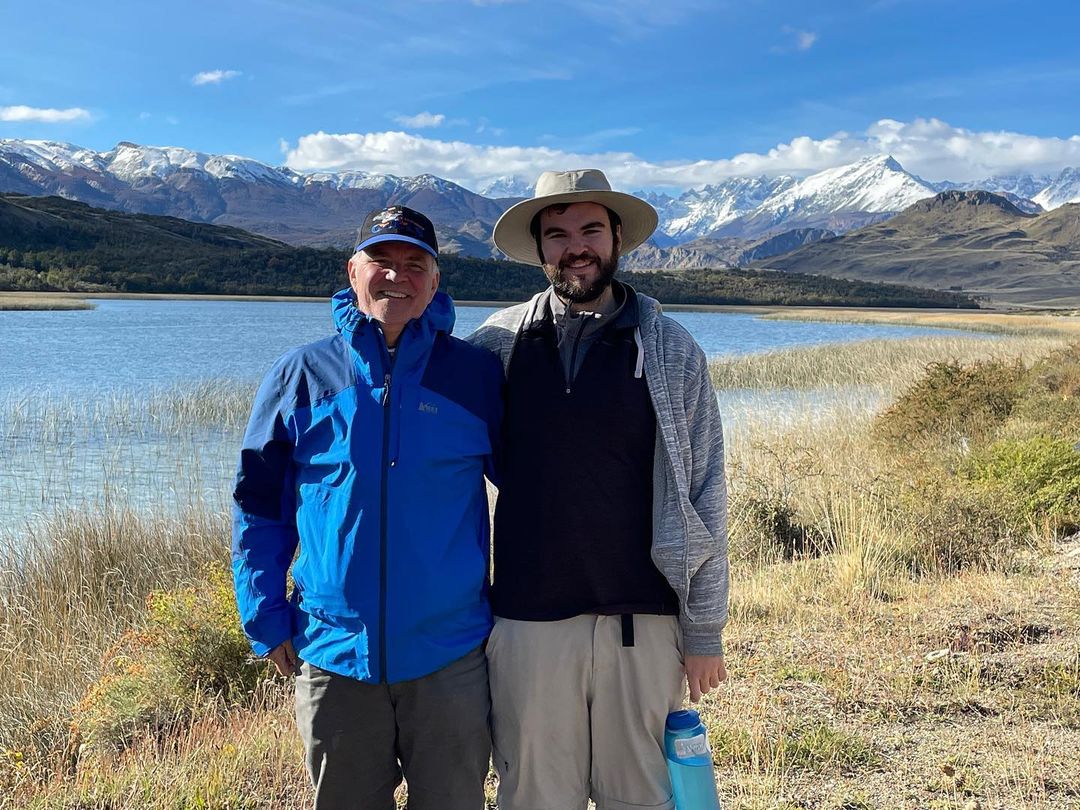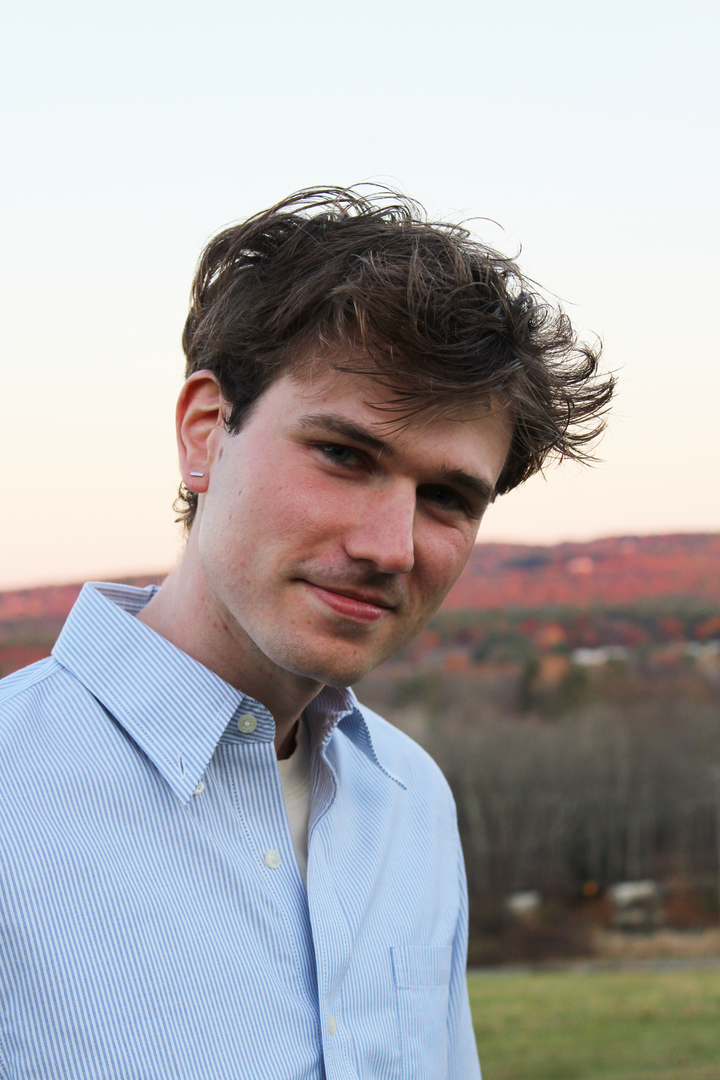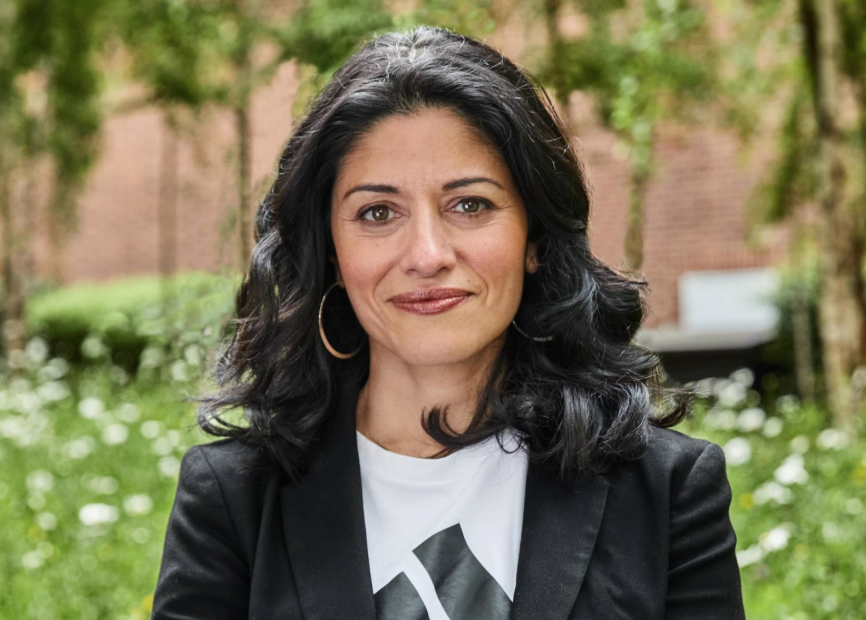The Up-And-Coming Bug-Crazy Explorer — Alumni Profile, James Colwell ’20
With an acute curiosity for nature and a love for insects, James Colwell ’20 has already found his place among scientists, just four years after his graduation.

While most second-graders dress up as pirates, astronauts, and superheroes for Halloween, a young James Colwell ’20 suited up as Charles Darwin — excited by the idea of emulating previous scientific pioneers and discovering new things about the natural world.
A recent graduate of the class of 2020, Colwell has set the groundwork for a career in natural biology, crediting the magic of science and the drive to contribute a lasting legacy of knowledge about the world around us — even through something as small as an insect.
“Once you author a new species name, your name is attached to that species forever. It goes down in history as whatever name — Colwell,” he said.
For his master’s degree, Colwell conducted research on Patagonian beetles, spending much of his time collecting, identifying, and setting traps for these insects in the rainforests of Chile.
Now pursuing a Ph.D. in Copenhagen based on analyzing the genetic material of these beetles, Colwell said he will soon be able to publish at least three new species alongside an exciting array of new data over the next couple of years.
A Young Darwin
Colwell spent his entire childhood on the West Coast in Berkeley, California. His parents worked in environmental conservation, which shaped much of his interest in biology and the natural world.
“The idea that things could be going extinct that we don’t even know exist bothered me.”
He referenced his middle school science teacher, who he referred to simply as Burt, as another important figure in his developing passion for biology.
“He always had us doing stuff like testing how bouncy tennis balls were, or comparing brands of yeast or whatever else he thought of. He made it fun.”
Colwell recalls taking every single biology course that was offered at his high school. Outside of school, he volunteered at a genetics-based epidemiology lab run by a family friend, where his interest in biology grew into an interest in genetics.
While a 16-year-old Colwell was mainly tasked with washing dishes, reorganizing freezers, and other basic chores, he recalled being fascinated by genetics as an investigative tool in biology.
“I got fascinated with the idea that there’s a system of genes that control so much of the natural world around us, that a lot of people don’t think about,” he said.
Colwell discovered his love for insects around the same time, crediting a high-school entomology course he took in his last trimester as the moment he first knew. But this entomological interest didn’t manifest itself into a career until much later.
“[I] didn’t really take entomology seriously as a career at that point. I hadn’t really realized that was something I could do.”
The Californian Takes on the East Coast
Colwell described small class sizes, undergraduate research, and the location in particular as drawing him to Amherst.
“Once I saw the town, I knew it was my top choice throughout the whole process.”
Outside of academics, Colwell played rugby all four years, serving as secretary and later president of the team. He described how it formed important relationships with the guys on the team, some of whom he still keeps in touch with today.
Colwell also lived at the Zü, Amherst’s on-campus food co-op, during his junior and senior years. He and two of his best friends, wanting the opportunity to cook for themselves, moved in at the same time and immediately loved the community.
“That was really a highlight for me — getting out of Val, getting to make good food, and have my own space with people.”
A true West Coaster, Colwell also found his place among other Californians in the Zü, “The East-Coast Vineyard-Vines crowd were never really my people,” he said.
Similarly, he described that he was never a “mainstream-party-at-Jenkins” kind of student, instead opting for the “Zü culture,” referencing their infamous full-moon parties as more his style.
In his free time, Colwell also loved to hike around Amherst — The Notch at Mount Holyoke Range State Park, in particular, was one of his favorite spots in the area.
Colwell majored in biology while at Amherst, and primarily kept himself busy with student research on campus, working with Professor of Biology Michael Hood as a greenhouse research assistant and with Professor of Biology and Thomas F. Pick Reader in Environmental Studies Jill Miller in her genetics-based research lab.
Colwell called Professor Miller his mentor throughout his four years at Amherst. She was his first-year seminar professor, as well as his thesis advisor.
Even though his research work at the college was focused on plant genetics, Colwell’s fascination with insects still did not waver.
He took Senior Lecturer in Biology & Environmental Studies Rachel Levin’s and Professor of Biology and Environmental Studies Ethan Clotfelter’s Tropical Biology Seminar his junior year, where students are given the opportunity to visit Costa Rica during the January term. The trip, he said, was the moment his passion for insects resurfaced.
“Going to Costa Rica, I was just in love. I was out of my mind with the insects there, the Katydids, all the camouflage, the colors, everything I was finding.”
A Turbulent Final Semester
Placing entomology on a brief back-burner, Colwell’s senior thesis involved plant genetics. But like all 2020 graduates, Covid completely disrupted his thesis writing and last semester as a whole.
Colwell had planned to dedicate the first few months of the semester entirely to his thesis, leaving the remaining weeks for a “last hurrah,” where he could spend time with friends and enjoy his last few moments as a college student.
But with the pandemic, his plan flew out the window. Instead, all his classes were canceled, and he had to fly back to California.
Colwell recalled having to wrap up his thesis work from home with an incomplete data set.
“I had like 3000 plants in the greenhouse that I was taking measurements on, and I couldn’t bring those home with me.”
Nevertheless, he admitted that things could’ve been much worse.
“In the end, it was sad and inconvenient, and finishing my thesis from home sucked. But in the grand scheme of things, can’t complain too much.”
Thrown in the Deep End
Freshly graduated, Colwell set his sights on utilizing his research experience to kick-start a career in studying insects.
Colwell’s career in entomology had a counterintuitive start — he began by working in a pesticide development lab.
“[I] really did not enjoy it, but it was a good kind of segue into entomology as a career,” he said.
At the height of the pandemic, Colwell used his genetic research background to get a job at Texas A&M University. Describing the experience as “isolated,” he largely kept to himself due to fears of getting sick in a pre-vaccine era.
“That was a bright red state, so people did not take it seriously at all,” he recounted.
While Colwell disliked most of his time there, he credited it as a way to get “formal entomology on the resume” and figure out what his next steps were career-wise.
Tiny New Discoveries
“I wanted to be out in nature, somewhere where I can recapture that magic from Costa Rica,” Colwell said when asked what motivated his eventual relocation to Patagonia.
He recalled finding the location beautiful and largely underdeveloped in terms of insect research, which excited him. The lack of tropical heat and Malaria-ridden mosquitos was another plus.
One cold email later, Colwell got in contact with another researcher in the Patagonian area, Isaí Madriz, who quickly expressed interest in working with him. Acquiring a visa was the main challenge, though.
“Months go by and he calls me one day like, ‘Hey, I found how to get you a visa. There’s this master’s program. The only catch is the deadline for applying is in seven days.’”
Colwell put together an application and research proposal entirely in Spanish and, in just one week, submitted it to La Universidad Metropolitana de Ciencias de la Educación in Chile.
He was accepted into a class of eight other students and traveled south to the Patagonian forest, where Patrícia Estrada, a researcher who specialized in beetles, took Colwell on as a student.

He lived in the small Chilean town of Puerto Rio Tranquillo for two years to work on research and complete his master’s.
The research focused on comparing the biodiversity of beetles found in forest moss cushions to those found in leaf litter on the forest floor. Colwell recounted 13 months of trapping and sampling out in the field using traps he built entirely himself. On top of that, he returned to the area after his master’s and did six months of backpacking through Patagonian forests, mountains, and glaciers to collect even more data.
“I’d drive down [to] these little remote valleys, find ranchers, and ask if I could set up a tent on their property [to] go collect in some of their forest for a few days,” he recalled.
He credited his developed fluency in Spanish as a huge help during these trips and interactions with locals.
While Colwell did have some experience with Spanish through middle and high school and later at Amherst, he admitted that communicating was challenging at first —- describing the process as “trial and error.”
“[I] lived in a guide house [with] 11 or 12 of us in really close quarters, and none of them spoke a lick of English,” he said. “Now I speak fluent Spanish, but with a Chilean accent.”
Yet another challenge, Colwell’s 70-page master’s thesis was also entirely in Spanish. He recounted writing the original draft in English and receiving a lot of help with the translation from his advisor.
Throughout his research process, Colwell was driven by the same motivation that first started his journey with science — the thirst for knowledge.
“I’m not curing cancer, it’s not something that is going to win a Nobel Prize … but I don’t think anyone can argue that knowing more about the world around us, what’s out there is anything but a benefit to us and to those things.”
“Do good science”
Now based in Europe, Colwell has just started his Ph.D. at the University of Copenhagen, where genetics has once again become the center of his work. Colwell plans on constructing a phylogenetic tree of a smaller sub-family of the beetles he studied, which he now knows about half of which belong to Rove Beetles, the largest family of life.
The project, he expects, could take 10 to 15 years, but with cutting-edge technology and some help from other scholars, he said it’s more than possible

“I’ve got great minds to bounce ideas off of, collaborators from other European universities, and access to all the collections here in Europe.”
In just four years since graduation, Colwell is living proof that with the right determination, a huge amount of curiosity, and a bit of science, you can make an insect-sized mark on the world.
“The end goal isn’t just to spray my name out there a bunch of times — it’s do good science and contribute to the work that all these people before me have done and people after me will do.”





Comments ()